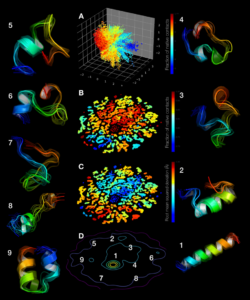NASEM’s report on Digital Twins is now available!
“Foundational Research Gaps & Future Directions for Digital Twins,” published by the National Academies of Sciences, Engineering, and Medicine (NASEM) identifies cross-sector challenges and recommendations to support this potentially transformative approach for biomedical research. Priorities include development of multi-agency collaborations with industry to advance the mathematical, statistical, and computational…
CloseRequest for Information: Calling all Researchers and Healthcare Community Contributors
NEW NCI Childhood Cancer Data Initiative (CCDI) Request for Information (RFI) on Electronic Health Record (EHR) data! Responses due using the submission webform by February 29, 2024. NCI’s CCDI invites participation from all stakeholders across the cancer research and health care community including vendors and developers in understanding information on existing capabilities for automated EHR…
CloseECICC Community
►Envisioning Computational Innovations for Cancer Challenges (ECICC) Scoping Meeting - March 2019
Envisioning Computational Innovations for Cancer Challenges: Scoping Meeting
March 6-7, 2019 | Livermore, CA
Meeting Description:
A Scoping Meeting is a large-scale, highly interactive, multi-disciplinary meeting that maximizes diverse expertise to break down a broad topic area into actionable challenges and opportunities.
A two-day, highly interactive, multi-disciplinary meeting for cancer, data, and computational scientists – at all career levels – who want to collaborate across disciplines to accelerate predictive oncology. A scoping meeting maximizes diverse expertise to break down a broad topic area into actionable challenges and opportunities. This meeting arose from a collaborative program between the National Cancer Institute (NCI) and the Department of Energy (DOE), Joint Design of Advanced Computational Solutions for Cancer (JDACS4C), to simultaneously accelerate advances in precision oncology and computing.
The meeting was held at Livermore Valley Open Campus at Lawrence Livermore National Laboratory on March 6-7, 2019.
Meeting Report
Meeting Agenda
Meeting Presentations:
Summaries of Challenge Areas:
-
Download the summary write-ups of the 4 cancer challenge areas from the Scoping Meeting
Biosketch Booklet
Photos and Post-It Notes
Meeting goals:
-
Identify lean-in scientific challenge areas that push the limits of current cancer research computational practices and compel the development of innovative computational technologies
-
Build a community, multi-disciplinary engagement, and collaboration among cancer, data, and computational scientists to create transformative impact
-
Demonstrate how to break down silos and work across domains, disciplines, and organizations
-
Define the types of cultural shifts in cancer research that could be possible with high-performance computing (HPC)
Background:
Since 2016, the National Cancer Institute and the US Department of Energy have been collaborating on the Joint Design of Advanced Computing Solutions for Cancer (JDACS4C) program to simultaneously accelerate advances in precision oncology and computing. The JDACS4C program has three research pilots that align with several existing NCI and DOE programs and are jointly led by DOE and NCI supported scientists. All three pilots embody a multi-disciplinary, team science approach. Together, these pilot projects are intended to pioneer new approaches to research and attain a greater understanding of cancer biology, diagnostics, prognostics, and treatment. The pilots utilize existing and emerging sources of cancer related data, increasingly large-scale multimodal data analysis, and simulations combined with advanced computational methods and algorithms from the DOE Exascale Computing Project. Intra- and extramural researchers have begun to access and use the jointly developed HPC and deep learning resources, such as the CANcer Distributed Learning Environment (CANDLE).
Current JDACS4C partners include the US National Cancer Institute, the US Department of Energy, Frederick National Laboratory for Cancer Research, and four DOE National Laboratories, including Argonne, Lawrence Livermore, Los Alamos, and Oak Ridge.
Inspired by the JDACS4C program, this Envisioning Computational Innovations for Cancer Challenges scoping meeting is based on the premise that greater capabilities and approaches to accelerate cancer research can be achieved through team science, technology adoption and collaboration/integration with the broader cancer research community.
Organized by:
Department of Energy Office of Science
Frederick National Laboratory for Cancer Research
Lawrence Livermore National Laboratory
